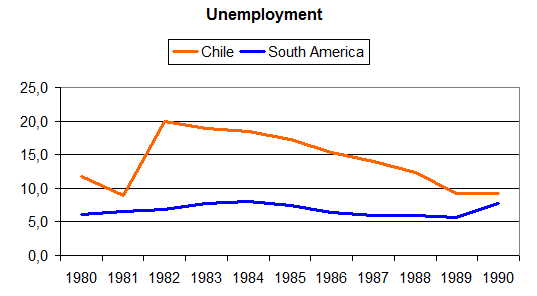Worth mentioning unemployment skyrocketed with Pinochet going from 4% to a sustained 20% along with inequality, with few families keeping most of the country richness, including Pinochet's family of course. Today, the gap beetwen the rich and the poor in Chile is among the biggest in the world:
http://247wallst.com/special-report...e-widest-gap-between-the-rich-and-the-poor/4/
So, Pinochet was good for the economy of some Chileans.
^ Biased statistics from communist fetishists.
Poverty went from 50% (1975) to 11% (2013) thanks to Pinochet's free market reforms.

